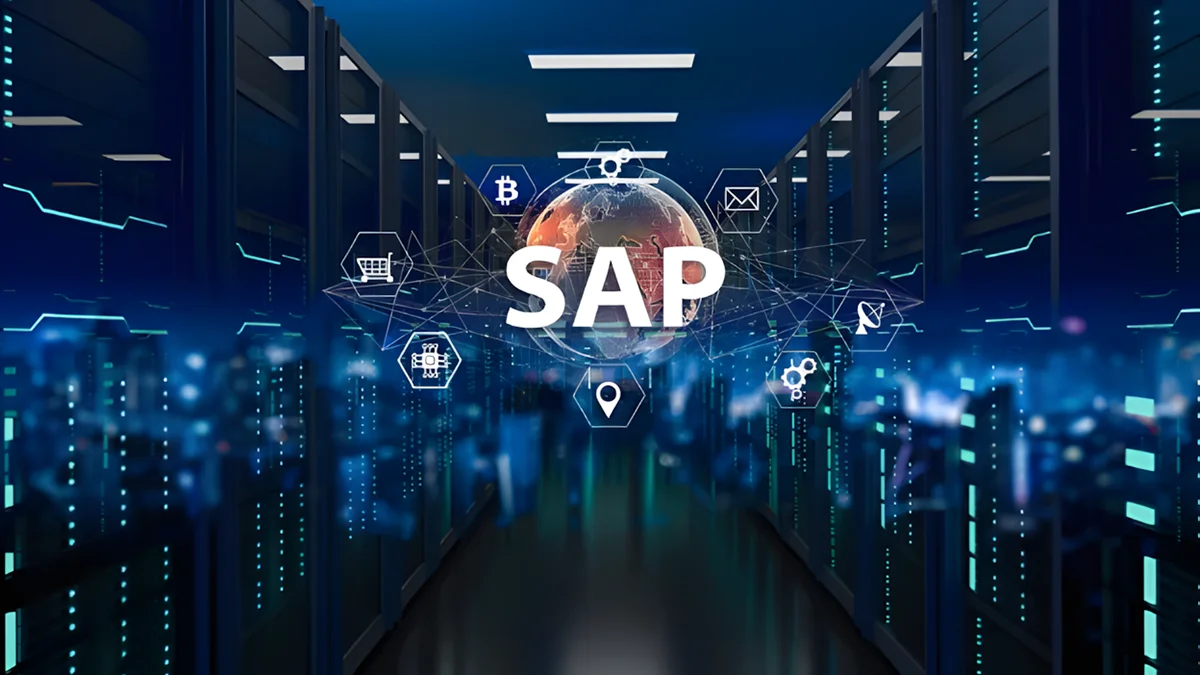1.
What is SAP Business Technology Platform (BTP)?
SAP Business Technology Platform, commonly known as SAP BTP, is a platform designed to meet enterprise needs in areas such as data management, application development, integration, artificial intelligence, and analytics—all under a single roof. We’ve answered all the essential questions about SAP BTP, which provides all the technologies businesses need to make their operations faster, smarter, and more agile.
One Platform for All Your Business Needs: SAP BTP
Let’s start by answering the question: What is SAP BTP? SAP Business Technology Platform is, in short, an enterprise cloud platform. It delivers existing and new SAP cloud services in an integrated and comprehensive manner. The primary goal of SAP BTP is to help companies become more innovative, agile, digital, and adaptive through tools, applications, and extensions. Various SAP BTP services—which can be deployed in both cloud-based and hybrid system architectures—accelerate the digital transformation of enterprise organizations. SAP BTP is a single platform offering modular, versatile, intelligent, flexible, and data-driven solutions.
2.
Core Components of SAP BTP
SAP BTP components form the technological foundation that supports companies in achieving their digitalization goals. These core components span a broad range—from data management and application development to analytics and integration. Thanks to its modular structure, SAP BTP enables businesses to select the services that best fit their needs and industry, ensuring compatibility with existing systems while preparing for the future. Let’s take a closer look at the core elements of SAP BTP.
Database and Data Management
With tools like SAP HANA and SAP Data Warehouse Cloud, large datasets can be processed in real time. This supports data-driven decision-making and structured enterprise data management.
Application Development and Automation
Developers are provided with both low-code/no-code tools and professional development environments. Modern user interfaces can be designed with SAP Fiori, and workflows can be automated (e.g., repetitive tasks with RPA).
Data Analytics
Through SAP Analytics Cloud, real-time reports, dashboards, and business intelligence solutions are delivered—enabling data-driven insights. With these capabilities, you can manage your business more proactively using advanced analytics.
Artificial Intelligence and Machine Learning
With SAP AI Core and AI Foundation, intelligent applications can be built. AI use cases such as predictive analytics and document processing can be seamlessly integrated.
3.
Why Choose SAP BTP?
If your organization already operates on S/4HANA, you can develop custom applications on SAP BTP to meet specific business requirements. For instance, a logistics company could use SAP BTP to integrate and visualize all its supply chain data. A bank could build a chatbot on BTP to automatically respond to customer queries. Or a manufacturer could analyze real-time data from machine sensors to perform predictive maintenance. SAP BTP is not just a technology platform—it is a strategic partner that accelerates your digital transformation journey. In today’s competitive environment, speed, agility, data-driven decision-making, and cross-system integration are more critical than ever. SAP BTP directly addresses all these needs.
4.
Key Advantages of SAP BTP
SAP BTP is a flexible and end-to-end technology infrastructure offering digitalization capabilities to enterprises. Its standout benefits include:
- Native integration with all SAP systems, including SAP S/4HANA, SuccessFactors, Ariba, and SAP CRM.
- Only the required components are activated, offering a flexible and modular structure.
- Real-time data analytics and reporting help businesses make faster and more accurate decisions.
- Provides deep insights with SAP HANA and SAP Analytics Cloud.
- AI-driven capabilities such as chatbots, document processing, and predictive analysis are easily integrated.
- Reduces repetitive workloads through Robotic Process Automation (RPA).
- Supports multi-cloud and hybrid cloud environments, allowing businesses to operate on their preferred cloud infrastructure.
- Ensures interoperability between on-premise and cloud systems.
- Delivers security layers such as data encryption, user authorization, and access controls.
- Minimizes manual tasks and maximizes automation opportunities for enterprises.
To ensure the healthy operation of your SAP infrastructure, GlassHouse experts provide services for SAP upgrades, SAP migrations, security, and all other management and operational needs.







